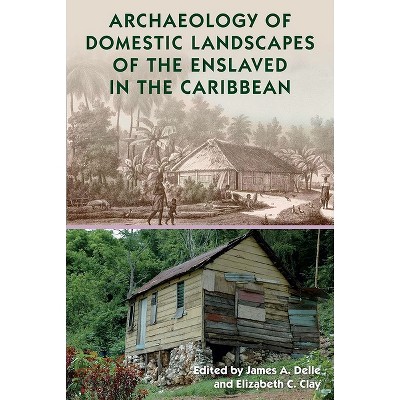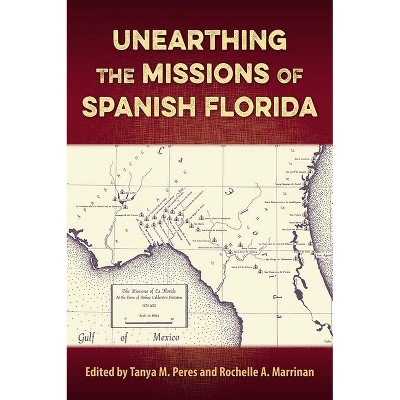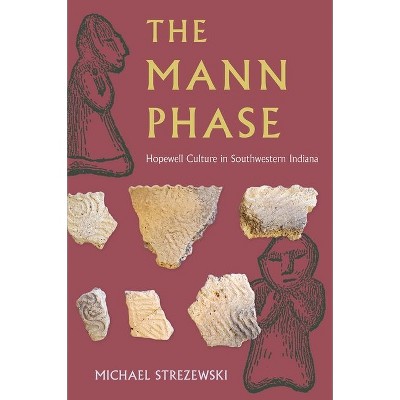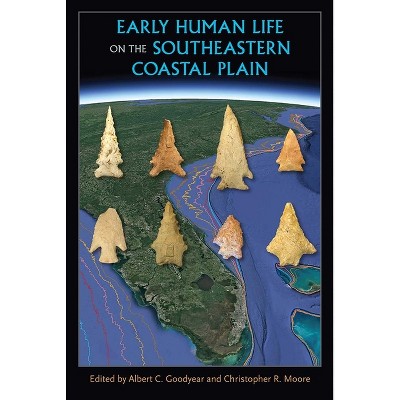Sponsored

Archaeologies of Slavery and Freedom in the Caribbean - (Florida Museum of Natural History: Ripley P. Bullen) (Paperback)
$28.99
In Stock
Eligible for registries and wish lists
Sponsored
About this item
Highlights
- Caribbean plantations and the forces that shaped them--slavery, sugar, capitalism, and the tropical, sometimes deadly environment--have been studied extensively.
- About the Author: Lynsey A. Bates is an archaeological analyst for the Digital Archaeological Archive of Comparative Slavery (DAACS).
- 372 Pages
- Social Science, Archaeology
- Series Name: Florida Museum of Natural History: Ripley P. Bullen
Description
About the Book
Caribbean plantations and the forces that shaped them--slavery, sugar, capitalism, and the tropical, sometimes deadly environment--have been studied extensively. This volume turns the focus to the places and times where the rules of the plantation system did not always apply, including the interstitial spaces that linked enslaved Africans with their neighbors at other plantations.Book Synopsis
Caribbean plantations and the forces that shaped them--slavery, sugar, capitalism, and the tropical, sometimes deadly environment--have been studied extensively. This volume brings together alternate stories of sites that fall outside the large cash-crop estates. Employing innovative research tools and integrating data from Dominica, St. Lucia, the Dominican Republic, Jamaica, Barbados, Nevis, Montserrat, and the British Virgin Islands, the contributors investigate the oft-overlooked interstitial spaces where enslaved Africans sought to maintain their own identities inside and outside the fixed borders of colonialism. Despite grueling work regimes and social and economic restrictions, people held in bondage carved out places of their own at the margins of slavery's reach. These essays reveal a complex world within and between sprawling plantations--a world of caves, gullies, provision grounds, field houses, fields, and the areas beyond them, where the enslaved networked, interacted, and exchanged goods and information. The volume also explores the lives of poor whites, Afro-descendant members of military garrisons, and free people of color, demonstrating that binary models of black slaves and white planters do not fully encompass the diversity of Caribbean identities before and after emancipation. Together, the analyses of marginal spaces and postemancipation communities provide a more nuanced understanding of the experiences of those who lived in the historic Caribbean, and who created, nurtured, and ultimately cut the roots of empire. Contributors: Hayden F. Bassett Lynsey A. Bates Zachary J.M. Beier Helen C. Blouet John M. Chenoweth John F. Cherry James A. Delle Kristen R. Fellows Khadene K. Harris Stephan T. Lenik Marco Meniketti Matthew C. Reilly Krysta Ryzewski Jane I. Seiter Frederick H. Smith Laurie A. Wilkie A volume in the Florida Museum of Natural History: Ripley P. Bullen SeriesReview Quotes
"Highlights sites, themes, and time periods that have often been overlooked by historical archaeologists, and looks particularly at how people maintained space within the oppressive structures of slavery and the relative freedom of post-slavery life in the Caribbean."--American Antiquity "This book marks an important move towards a better understanding of the complexities of Caribbean historical archaeology."--Cambridge Archaeological Journal "Expose[s] the existence of a parallel local economy alongside the plantation export economy . . . [and] shows how historical archaeologists must deal with incomplete records and inadequate documentation."--Choice "Encapsulates the lived experiences of enslaved Africans through a postcolonial and landscape perspective, illuminating new directions for future research of previously overlooked and understudied archaeological assemblages."--Anthropology Book Forum "Some of the lesser known aspects of human bondage are revealed in this new volume, which offers more nuanced and alternative views of slavery and freedom in the region. . . . [and] paves the way for archaeologists to rethink old questions and seek alternative avenues of research in exciting new ways."--Society for Historical Archaeology
About the Author
Lynsey A. Bates is an archaeological analyst for the Digital Archaeological Archive of Comparative Slavery (DAACS). John M. Chenoweth is assistant professor of anthropology at the University of Michigan-Dearborn. James A. Delle, associate dean of the College of Arts and Sciences at Shippensburg University, is the editor of The Limits of Tyranny.Dimensions (Overall): 9.21 Inches (H) x 6.14 Inches (W) x .83 Inches (D)
Weight: 1.26 Pounds
Suggested Age: 22 Years and Up
Number of Pages: 372
Genre: Social Science
Sub-Genre: Archaeology
Series Title: Florida Museum of Natural History: Ripley P. Bullen
Publisher: University of Florida Press
Format: Paperback
Author: Lynsey A Bates & John M Chenoweth & James A Delle
Language: English
Street Date: October 16, 2018
TCIN: 1004471957
UPC: 9781683400554
Item Number (DPCI): 247-42-3836
Origin: Made in the USA or Imported
If the item details aren’t accurate or complete, we want to know about it.
Shipping details
Estimated ship dimensions: 0.83 inches length x 6.14 inches width x 9.21 inches height
Estimated ship weight: 1.26 pounds
We regret that this item cannot be shipped to PO Boxes.
This item cannot be shipped to the following locations: American Samoa (see also separate entry under AS), Guam (see also separate entry under GU), Northern Mariana Islands, Puerto Rico (see also separate entry under PR), United States Minor Outlying Islands, Virgin Islands, U.S., APO/FPO
Return details
This item can be returned to any Target store or Target.com.
This item must be returned within 90 days of the date it was purchased in store, shipped, delivered by a Shipt shopper, or made ready for pickup.
See the return policy for complete information.
Trending Non-Fiction

$15.68
Buy 1, get 1 50% off select books
4.8 out of 5 stars with 173 ratings

Highly rated
$20.98
was $27.00 New lower price
Buy 1, get 1 50% off select books
4.3 out of 5 stars with 41 ratings

$19.58
MSRP $29.00
Buy 1, get 1 50% off select books
4.4 out of 5 stars with 5 ratings

$4.59
MSRP $7.99
Buy 1, get 1 50% off select books
4.8 out of 5 stars with 111 ratings

$6.20
MSRP $10.95
Buy 1, get 1 50% off select books
4.8 out of 5 stars with 29 ratings

$7.09
MSRP $9.99
Buy 1, get 1 50% off select books
4.9 out of 5 stars with 38 ratings





